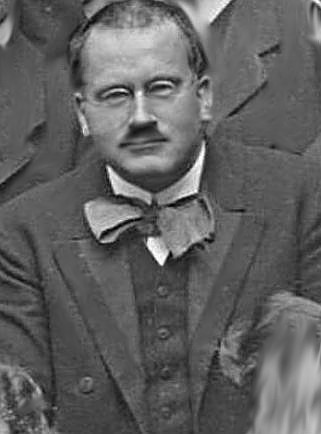Freud vs Jung
Understanding the distinctions between Sigmund Freud and Carl Jung and their respective theories is crucial for psychology students, as both are regarded as psychologists who made significant contributions to the field. Although Freud and Jung initially shared a strong friendship, their theoretical differences eventually led to the dissolution of their bond. The primary differences can be observed in their views on the unconscious, dream analysis, and sexuality. This article seeks to explore these differences by providing a comprehensive understanding of both theorists.
Who is Sigmund Freud?
Sigmund Freud is often considered the father of modern psychology. His contributions to the psychoanalytical school of thought are vast. Freudian theories primarily focus on the human mind and the power of the unconscious. He introduced several theories, but this article will concentrate on the iceberg theory, which emphasizes the role of the unconscious, as well as dream analysis and the concept of sexuality through the Oedipus and Electra complex. These aspects clearly distinguish Freud from Jung. First, we’ll examine the iceberg theory.
According to the iceberg theory, the human mind consists of three parts: the conscious, preconscious, and unconscious. Freud emphasized the importance of the unconscious, as it is inaccessible and contains human fears, selfish needs, violent motives, and immoral urges. He believed that unconscious expressions manifest in dreams, slips of speech, and mannerisms.
Freud also discussed dream analysis, asserting that dreams represent repressed feelings of the unconscious, which are predominantly sexual in nature. He argued that during sleep, these repressed emotions emerge in the form of dreams. As a result, he saw a need to analyze these dreams to understand the individual’s mind. Freud developed a dream dictionary, which assigned specific definitions to various imagery to interpret the individual’s state.
Another area where Freud and Jung’s theories diverged was the concept of sexuality. Freud’s theories are heavily influenced by the idea of sexuality and sexual desires, as evidenced by his concept of the Oedipus complex during psychosexual stages. The Oedipus complex refers to the male child’s sexual desire for the mother and resulting resentment and jealousy toward the father, whom the child perceives as competition. This can even lead to castration anxiety. The Electra complex is the inverse of this concept, as it pertains to the female child’s resentment and jealousy of the mother and sexual desire for the father, resulting in penis envy.
Who is Carl Jung?
Carl Jung is often regarded as the founder of analytical psychology. His theoretical differences and departures from Freud’s framework are evident in the assumptions of Jung’s analytical psychology. First, when examining the concept of the unconscious, which fascinated both psychologists, a clear distinction can be observed in their interpretations of the human mind or psyche. Jung believed that the human psyche is comprised of three components: the ego, the personal unconscious, and the collective unconscious.
The ego represents the conscious mind, encompassing the feelings and memories of which an individual is aware. The personal unconscious is similar to Freud’s unconscious, as it stores hidden fears, memories, and desires. The distinction between the two theories lies in the idea of the collective unconscious. The collective unconscious is shared by individuals through genetic makeup and history and includes the entirety of human experience that one is born with.
Like Freud, Jung believed that dream analysis was important because it provided a gateway to the unconscious. However, he disagreed with Freud’s notion that dreams always represent repressed sexual desires. Instead, Jung argued that dreams contain symbolic imagery with various meanings, not only in the past but also in the future. He opposed the idea of having a rigid interpretation for each dream, as Freud did.
In terms of sexuality, Jung rejected both the Oedipus and Electra complex, as he viewed the parent-child bond as rooted in love, care, and security. He also believed that Freud’s focus on sexuality was excessive and that libidinal energy could have multiple outputs, with sexuality being just one of them.
Key Takeaways
- Both Freud and Jung believed that the human psyche is composed of three components, but their divisions and interpretations of these components differ.
- Freud and Jung both considered dream analysis important, but Jung believed that dreams could have various meanings and were not always derived from sexual associations.
- Jung rejected Freud’s concepts of Oedipus and Electra complex in psychosexual stages and broadened the meaning of libidinal energy beyond the sexual instinct.
